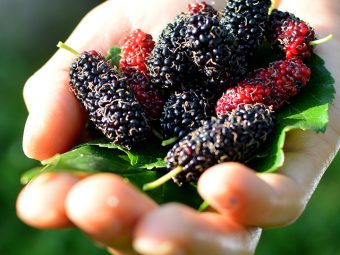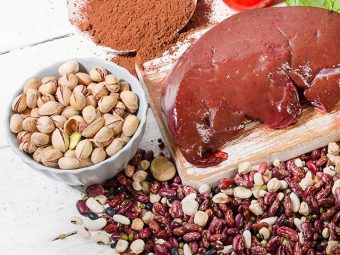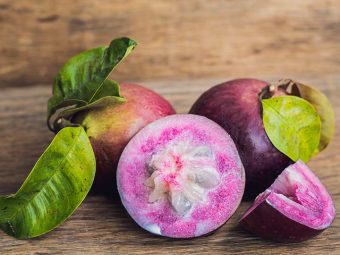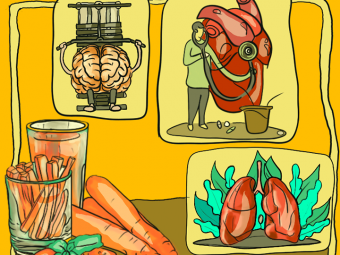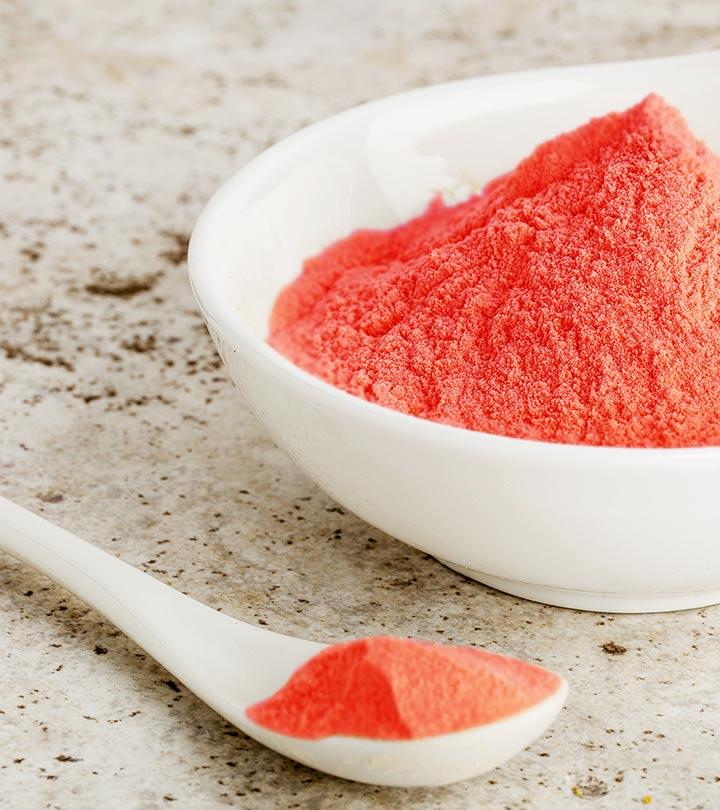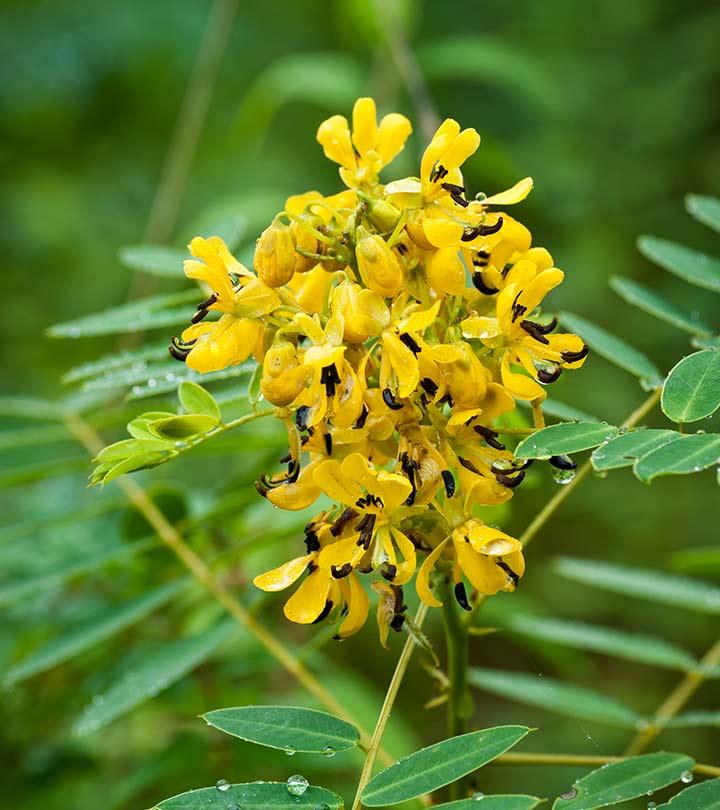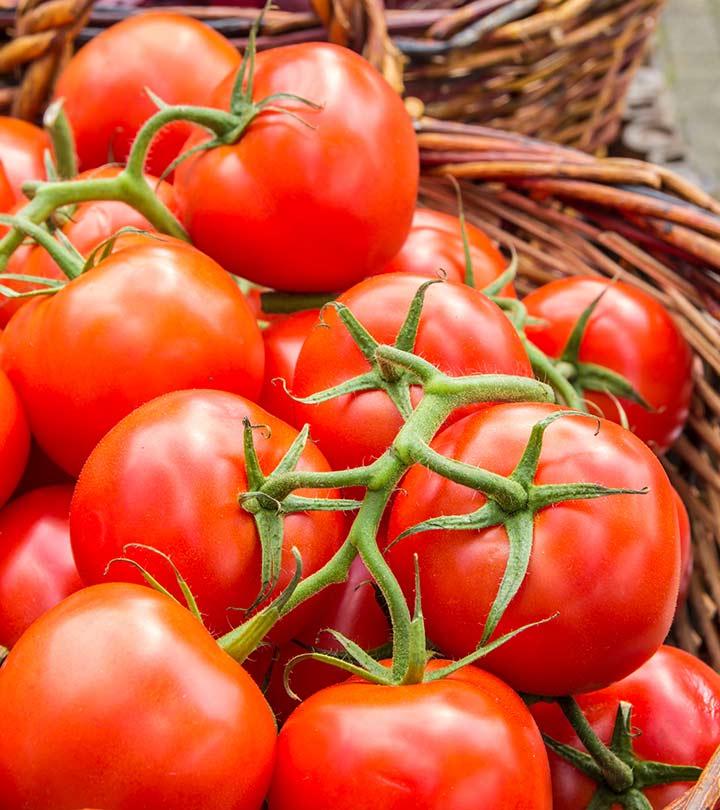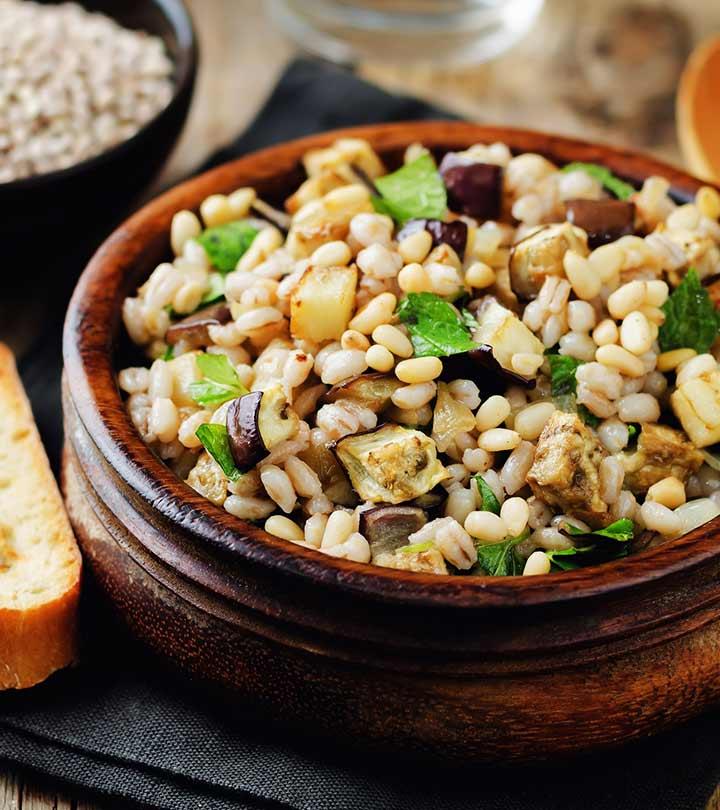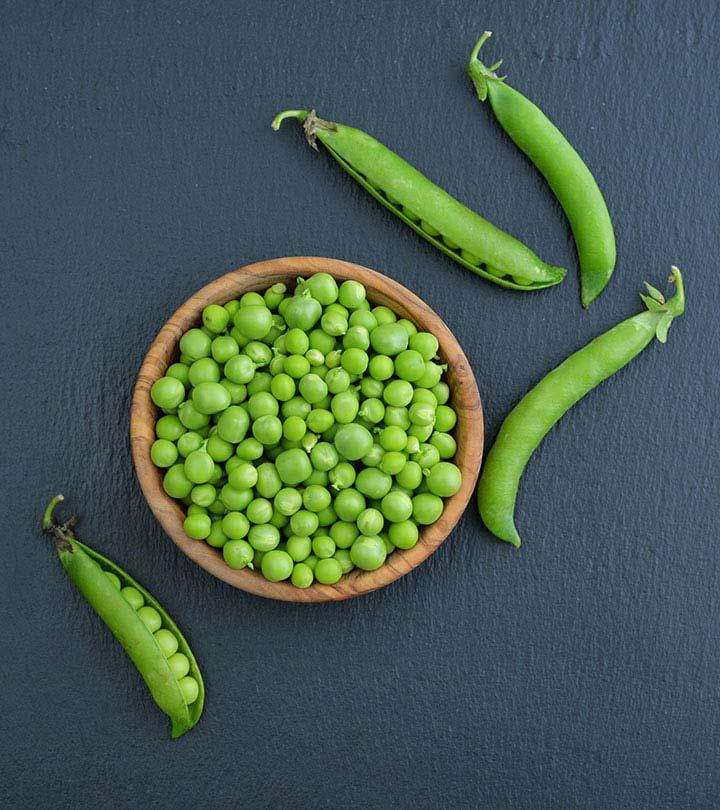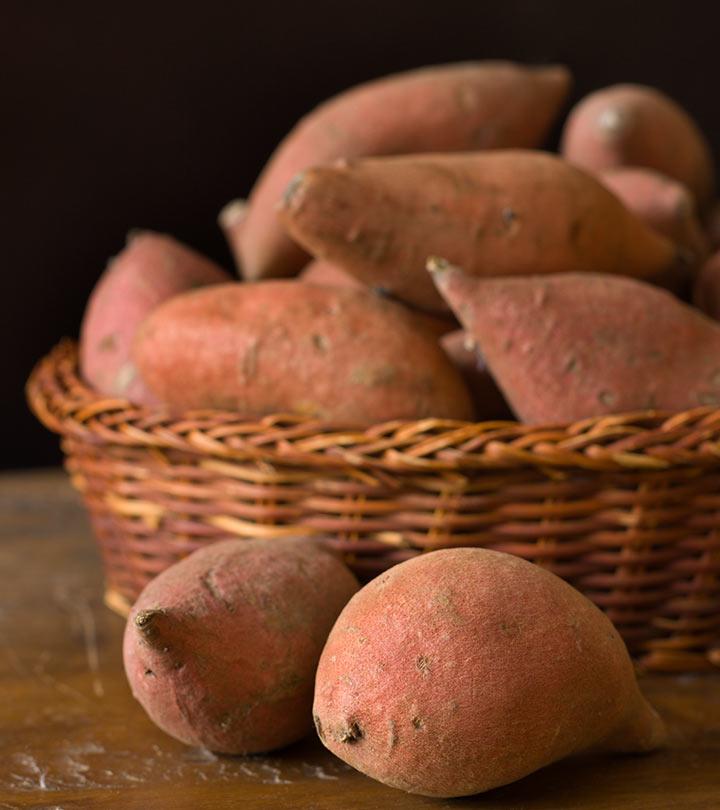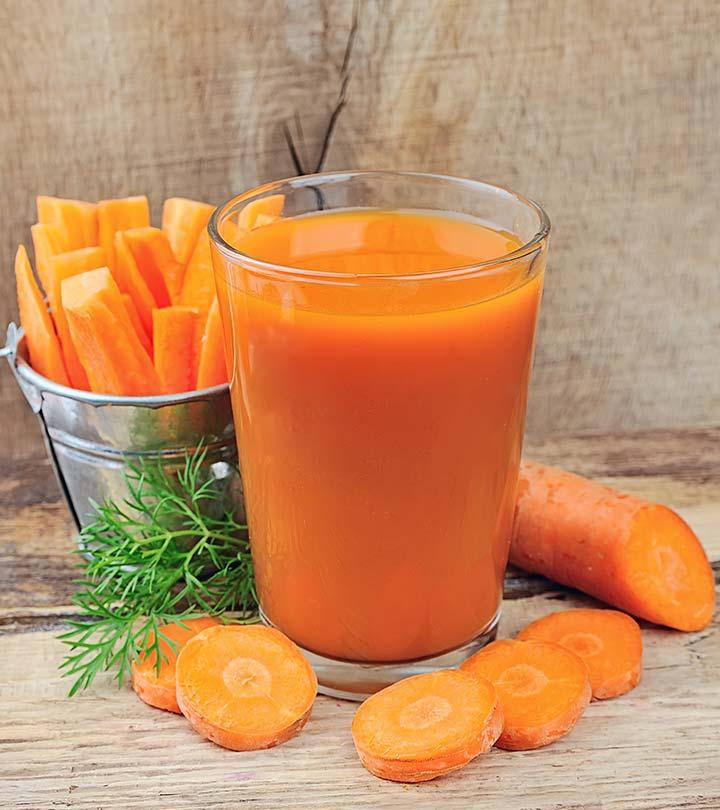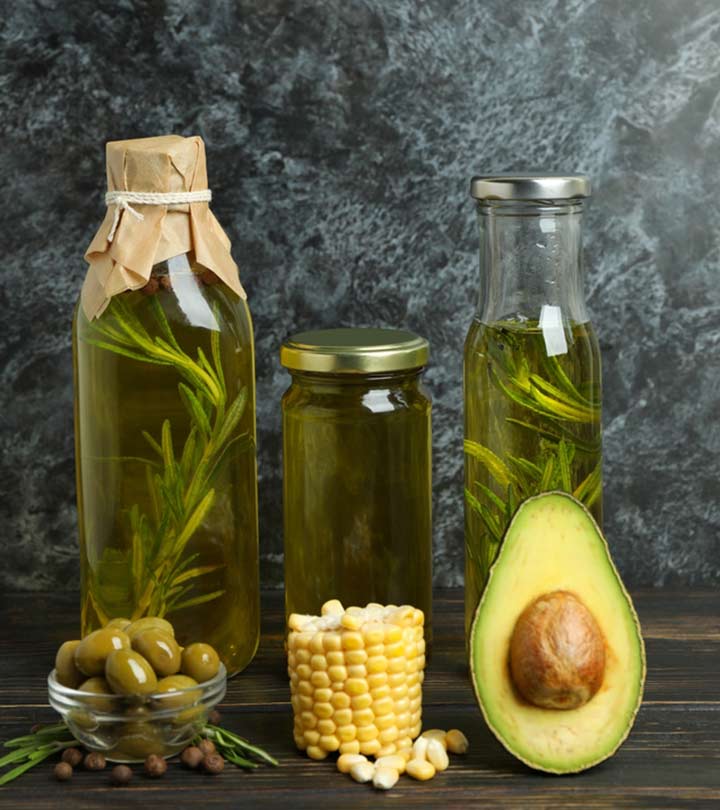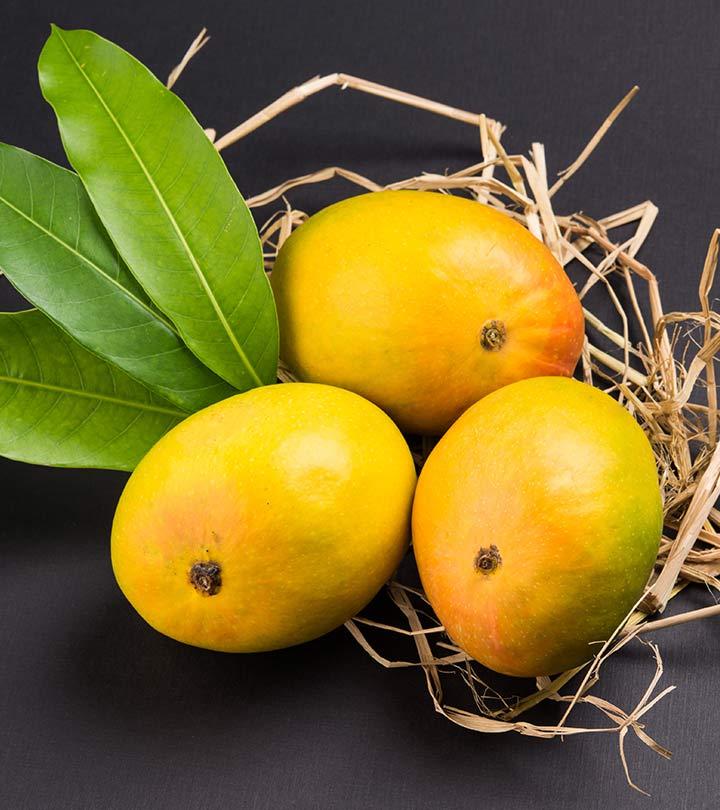9 Benefits Of Persimmons That You Should Know
This God's candy comes with a list of qualities to improve your overall health.

Image: Shutterstock
Persimmons are known for their unique sweet flavor. The benefits of persimmons are gaining attention. The fruit originated in China and is rich in vitamin C, phosphorus, and potassium (1). Because of its delicious taste, persimmons are also called nature’s or God’s candy. This exotic fruit is rich in antioxidants. Scroll down to know more about the nutritional facts, potential side effects, and health benefits of persimmon fruits.
 Know Your Ingredient: Persimmons
Know Your Ingredient: PersimmonsWhat Is It?
An edible fruit produced by a variety of trees belonging to the genus Diospyros.
What Are Its Benefits?
It helps treat inflammation, prevents cancer, improves heart, stomach, eye, and skin health, and boosts immunity.
Who Can Use It?
They can be safely consumed by all in moderation.
How Often?
It is advised that you limit your daily fruit intake to 100 g or one persimmon.
Caution
Some individuals may be allergic to it. Excessive consumption may lead to bezoars, intestinal blockages, vomiting, nausea, or constipation.
In This Article
Health Benefits Of Persimmon
1. May Help Boost Immunity
Eating persimmons may help boost immunity as they are rich in ascorbic acid (vitamin C) (1). A single persimmon offers enough vitamin C required for a day. Studies suggest that ascorbic acid may improve the immune system by increasing the production of white blood cells (2) ( 3). These cells are the primary line of defense for the body against viral, microbial, and fungal infections, and other toxins.
2. May Improve Vision Health
Persimmon is also rich in vitamin A and other carotenoid antioxidantsi XA red-yellow pigment found in plants that acts as an antioxidant. It can decrease the risk of various cancers and eye diseases. like lutein and zeaxanthin (4). These may help enhance the function of the optic nerve and protect eyes from cataractsi XEye disorder that causes blurry vision due to degeneration of the eye lens, especially in old age. and age-related macular degenerationi XA medical condition in which the central part of the retina (macula) starts deteriorating, causing significant vision loss. (AMD causes vision loss)(5). Consuming persimmons regularly may also decrease the risk of adverse ailments like glaucomai XAn eye disorder caused by a damaged optic nerve due to excessive strain on the eyes. It can lead to partial or complete blindness. , night blindness, and other AMD diseasesi XAge-related macular degeneration affects the central vision of the eye and can lead to complete or partial blindness. (5).
 Trivia
Trivia3. May Help Alleviate Digestive Disorders
Persimmon contains vitamin B6. It helps regulate the breakdown of proteins, fats, and carbohydrates and offers optimal metabolism and energy levels (4) (6). It also may provide relief from flatulence, bloating, and constipation. Phytonutrients in a ripe persimmon, like tannins and polyphenols, have antimicrobial features that may help reduce stomach infections. Fibers help balance gut microbial flora for the smooth functioning of the intestines (7).
4. May Lower The Risk Of Heart Disease
Persimmon contains several beneficial plant compounds with powerful antioxidant properties. These antioxidants help prevent or slow down cell damage by counteracting oxidative stress (a process triggered by unstable molecules called free radicals). The tannic and gallic acids in persimmons, along with the other flavonoids and antioxidants, may reduce high blood pressure, inflammation, and high cholesterol (8). Oxidative stress has been associated with chronic diseases like cancer, diabetes, heart disease, and other similar conditions (9). Consuming antioxidant-rich fruits like persimmons may help lower the risk of these diseases. Persimmons are also rich in carotenoid antioxidantsi XA red-yellow pigment found in plants that acts as an antioxidant. It can decrease the risk of various cancers and eye diseases. like beta-carotene, which is a pigment found in various brightly-colored fruits and vegetables. Studies suggest that a diet rich in beta-carotene may help lower the risk of heart disease (10).
5. May Lower The Risk Of Cancer
Persimmon fruit is known for its potential anti-carcinogenici XA substance that helps prevent the growth of cancerous cells and counteracts the effects of existing ones. effects. Including this fruit in one’s diet may reduce the risk of cancer. It is rich in flavonoids and carotenoids like beta-carotene. Beta-carotene may help reduce the risk of lung and colorectal cancer (10).
6. May Help Fight Inflammation
A study in rats found that the antioxidant properties of persimmon may help reduce inflammation and tissue damage (11). Further, the vitamin C content in Chinese persimmon may help combat inflammation. This may reduce the risk of heart disease, diabetes, and prostate cancer (12), (13). Reduced inflammation may also bring down the risk of arthritis and keep your joints healthy.
7. May Help Treat Constipation
Persimmon is also high in fiber, especially when dried (14). One persimmon contains about 6 grams of fiber. Adequate fiber helps pass stool easily and keeps your digestive tract healthy. Fiber may help lower the levels of bad cholesterol (LDL cholesterol) in the body. Moreover, the soluble fiber in persimmons binds with the cholesterol in the body and may help reduce its levels (15).
8. May Slow Down Premature Aging
Persimmon is rich in vitamin A, beta-carotene, lutein, lycopene, and cryptoxanthin (16). These antioxidants help reduce oxidative stress and may help delay the onset of wrinkles and age spots.
9. May Aid Weight Loss
Persimmon can be a useful addition to your diet plan as it may aid weight management. It is packed with nutrients like vitamins, polyphenols, protein, gallic acid, and fiber that may help prevent obesity and weight gain. A study conducted on mice that were fed fermented persimmon extract found that it reduced body weight by about 15%, decreased belly and liver fat, and lowered the levels of triglycerides, cholesterol, and glucose in the blood (17). Persimmon was also found to help fight obesity in overweight mice by stopping the formation of fat cells, decreasing the production and storage of fats, and controlling certain genes that are involved in fat-related processes in their bodies (18). However, more research needs to be conducted on humans to prove these claims.
These are the important ways persimmon may benefit your health. Interestingly, this fruit is available in different types. Let us explore them below.
Different Types Of Persimmons
Persimmons are available in hundreds of different types. The most common ones include the following:
- Astringent Or Hachiya Persimmon
Astringent or heart-shaped hachiya persimmons are high in tannins, a type of plant chemical (1). Tannins give the unripe version of the fruit a bitter, dry taste. Hence, you may eat ripened astringent persimmons for better taste.
- Non-Astringent Or Fuyu Persimmon
Non-astringent or fuyu persimmons can be eaten unripe although they also are rich in tannins. They are a seasonally available variety from New Zealand and have a shorter shelf life. Persimmons are also classified into these other types:
- American persimmon
- Japanese persimmon
- Date-plum tree persimmon
- Black persimmon
- Indian persimmon
 Trivia
TriviaNutritional Values Of Persimmon
When it comes to persimmon, nutrition is abundant as it includes vitamins A, C, E, and B6. The fruit is also high in dietary fiber, copper, magnesium, manganese, phosphorus, and potassium (4). A study published in the Journal of Experimental and Clinical Sciences suggests that persimmons also contain other organic compounds, including carotenoids and catechinsi XA substance obtained from tea that can help prevent cell damage caused by unstable oxygen molecules. . Many of these contribute to various health benefits (1), (4).
How Can You Enjoy The Advantages Of Persimmon?
The best way to enjoy the goodness of persimmon is adding the fruit slices on top of cold or hot cereal, pancakes, or to yogurt parfait. You also can have them as a snack by adding them sliced to a salad or mixing them in a green protein smoothie. Eating one medium-sized persimmon (about 100 grams) every day is ideal for optimal health. Persimmons can be added to various dishes to provide an extra boost to your health. They pair well with both sweet and savory foods. However, some varieties, such as the hachiya, can be extremely astringent so be careful to let them properly ripen before you eat them.
Jeanne, a botany and culinary blogger, talks about her earliest encounters with the fruit on her blog. “When I got my hands on those first hachiyas, the timely advice of a friend spared me the unpleasant experience of learning the hard way that most persimmon varieties are inedibly astringent before they are either completely ripe or dried. We had to set them out on the windowsill until they were quite ripe. Perfectly ripe hachiyas become translucent and jelly-like, and their flesh can be gently sliced and dried or easily spooned out of the skin and eaten as is (i),” she observes.
With that advice out of the way, here are some of the ways you can add persimmon to your diet.
How To Add Persimmon To Your Diet?
- Roast persimmons in the oven and drizzle with honey for a tasty and healthy dessert.
- Top yogurt or oatmeal with fresh or cooked persimmon.
- Boil persimmon and serve with baked Brie as an appetizer.
- Bake persimmons with chicken or meat for a tasty and unique flavor combination.
- Mix dried or fresh persimmon into bread, muffin, or any cake mix.
- Combine with berries and citrus fruits for a delicious fruit salad.
- Slice and dry persimmons in the oven to make natural fruit strips.
- Add frozen persimmons to smoothies for extra nutrients.
These are some of the easiest ways to add persimmon to your diet. But as with all fruits, no exceptions for persimmon, bad side effects are something you should be aware of. Continue reading to know them.
Side Effects Of Eating Persimmons
Eating this fruit in moderation is generally safe, but there are some persimmon fruit side effects that can harm some people. If you experience nausea, stomach upset, or an anaphylactic shock (release of a flood of chemicals) in extreme conditions, then you might be allergic to this fruit (19), (20). Persimmon may also not be recommended for hypotensive individuals. The tannic and gallic acids it contains may lower blood pressure way too much. Consult your doctor for more info. Ingesting large quantities of ripe persimmon may lead to bezoars. These are hardened masses that are produced when the tannins in persimmon react with stomach acids. Bezoars can impede digestive passages and cause gastrointestinal issues (21). Hence, avoid excess intake of persimmon.
Takeaway
Frequently Asked Questions
Is persimmon good for kidneys?
Yes, persimmon is good for the kidneys. It is loaded with vitamin A that is essential for the proper functioning of kidneys. It is also low in phosphorus and fat and could be ideal for a kidney-friendly diet.
Is it OK to eat persimmon skin?
Yes, it is safe to eat persimmon skin. However, make sure the fruit is washed under running water before consuming it.
Do persimmons cause blood clots?
No, persimmons will not cause blood clots. In fact, their proanthocyanidini XA compound found in plants that works as an antioxidant and protects against cardiovascular diseases and cell degeneration. content helps prevent the formation of blood clots.
Are persimmons acidic or alkaline?
Persimmons are alkaline. They have a pH of 9.0.
Can persimmons cause kidney stones?
No, persimmons do not cause kidney stones.
Key Takeaways
- Persimmon is an exotic fruit rich in vitamin C.
- Persimmon benefits your health due to its high antioxidant and nutrient profile.
- It may help boost immunity, improve vision, alleviate digestive disorders, and lower the risk of heart disease.
- You can have it as a snack by adding it to your favorite smoothie or salad.
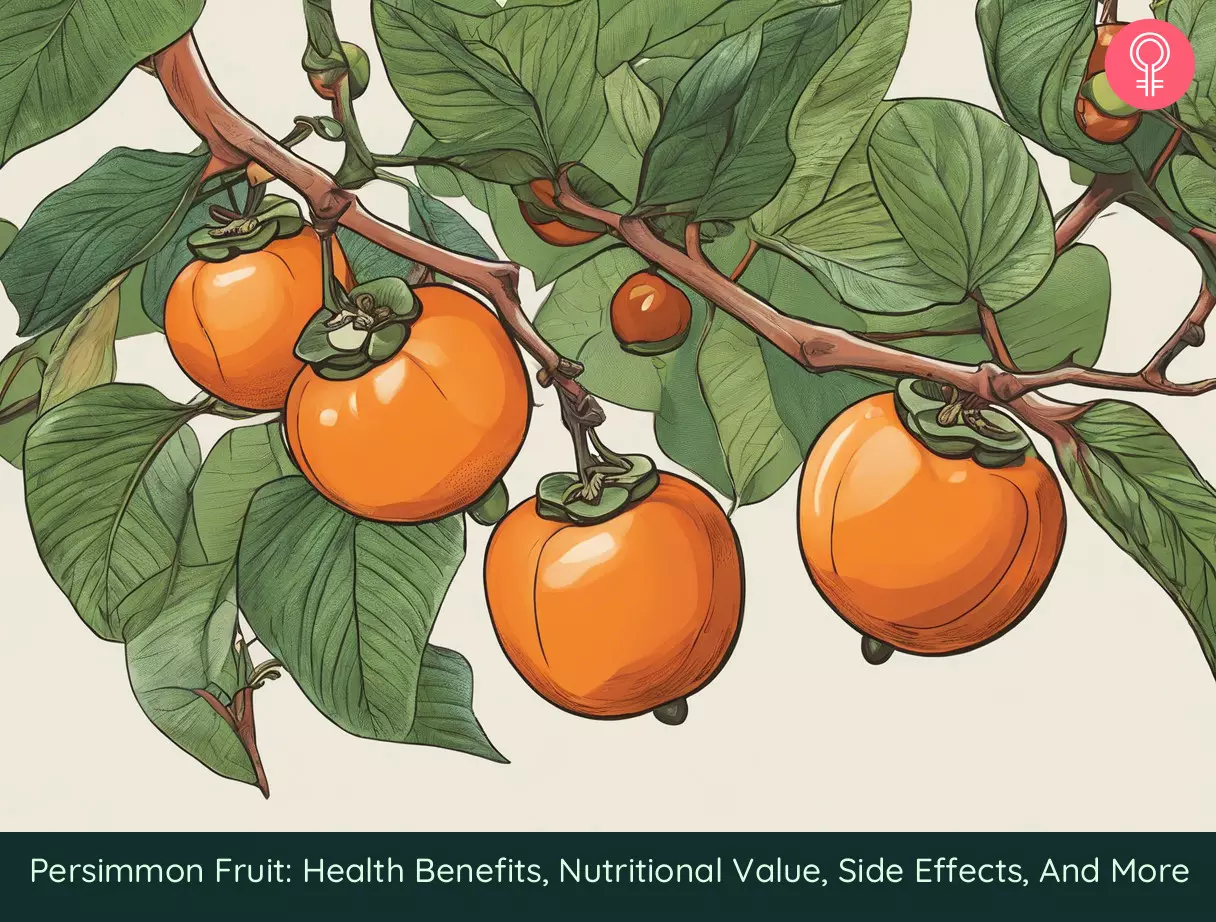
Image: Stable Diffusion/StyleCraze Design Team
Personal Experience: Source
StyleCraze's articles are interwoven with authentic personal narratives that provide depth and resonance to our content. Below are the sources of the personal accounts referenced in this article.
(i) The holidays mean persimmonshttps://botanistinthekitchen.blog/2012/12/24/the-holidays-mean-persimmons/
References
Articles on StyleCraze are backed by verified information from peer-reviewed and academic research papers, reputed organizations, research institutions, and medical associations to ensure accuracy and relevance. Read our editorial policy to learn more.
- Persimmon (Diospyros kaki) fruit: hidden phytochemicals and health claims https://www.ncbi.nlm.nih.gov/labs/pmc/articles/PMC4817420/
- Influence of Vitamin C on Lymphocytes: An Overview https://www.ncbi.nlm.nih.gov/labs/pmc/articles/PMC5874527/
- Vitamin C and Immune Function https://pubmed.ncbi.nlm.nih.gov/29099763/
- Persimmons, Japanese, raw https://fdc.nal.usda.gov/fdc-app.html#/food-details/169941/nutrients
- The Intraocular Pressure-Lowering Effect of Persimmon leaves (Diospyros kaki) in a Mouse Model of Glaucoma https://www.ncbi.nlm.nih.gov/labs/pmc/articles/PMC6862624/
- Vitamin B6 https://ods.od.nih.gov/factsheets/VitaminB6-Consumer/
- Evaluation studies of persimmon plant (Diospyros kaki) for physiological benefits and bioaccessibility of antioxidants by in vitro simulated gastrointestinal digestion https://pubmed.ncbi.nlm.nih.gov/27507501/
- Chronic inflammation and oxidative stress as a major cause of age-related diseases and cancer https://pubmed.ncbi.nlm.nih.gov/19149749/
- Dietary circulating beta-carotene and risk of all-cause mortality: a meta-analysis from prospective studies https://www.ncbi.nlm.nih.gov/labs/pmc/articles/PMC4886629/
- Anti-inflammatory Effects of Persimmon ( Diospyros kaki L.) in Experimental Rodent Rheumatoid Arthritis https://pubmed.ncbi.nlm.nih.gov/31359802/
- Dietary Vitamin C Intake Reduces the Risk of Type 2 Diabetes in Chinese Adults: HOMA-IR and T-AOC as Potential Mediators https://www.ncbi.nlm.nih.gov/labs/pmc/articles/PMC5042374/
- Association between Dietary Vitamin C Intake and Risk of Prostate Cancer: A Meta-analysis Involving 103,658 Subjects https://www.ncbi.nlm.nih.gov/labs/pmc/articles/PMC4532989/
- PROVITAMIN A (ALPHA-CAROTENE, BETA-CAROTENE AND BETA-CRYPTOXANTHIN) AND ASCORBIC ACID CONTENT OF JAPANESE AND AMERICAN PERSIMMONS https://onlinelibrary.wiley.com/doi/abs/10.1111/j.1745-4557.1990.tb00009.x
- Food Ingredients That Inhibit Cholesterol Absorption https://www.ncbi.nlm.nih.gov/labs/pmc/articles/PMC5503415/
- Management of persimmon bezoars (diospyrobezoars) https://pubmed.ncbi.nlm.nih.gov/515761/
- Anaphylaxis after ingestion of sharon fruit https://pubmed.ncbi.nlm.nih.gov/11420030/
- Anti-obesity Effect of Fermented Persimmon Extracts via Activation of AMP-Activated Protein Kinase
https://pubmed.ncbi.nlm.nih.gov/32115502/ - Young Persimmon Fruit Extract Suppresses Obesity by Modulating Lipid Metabolism in White Adipose Tissue of Obese Mice
https://pubmed.ncbi.nlm.nih.gov/32023417/ - Persimmon fruit causing simultaneous small bowel and stomach obstruction https://www.ncbi.nlm.nih.gov/labs/pmc/articles/PMC6875815/
- Diets for Constipation https://www.ncbi.nlm.nih.gov/labs/pmc/articles/PMC4291444/
- Persimmon fruit causing simultaneous small bowel and stomach obstruction https://www.ncbi.nlm.nih.gov/labs/pmc/articles/PMC6875815/
- Diets for Constipation https://www.ncbi.nlm.nih.gov/labs/pmc/articles/PMC4291444/














